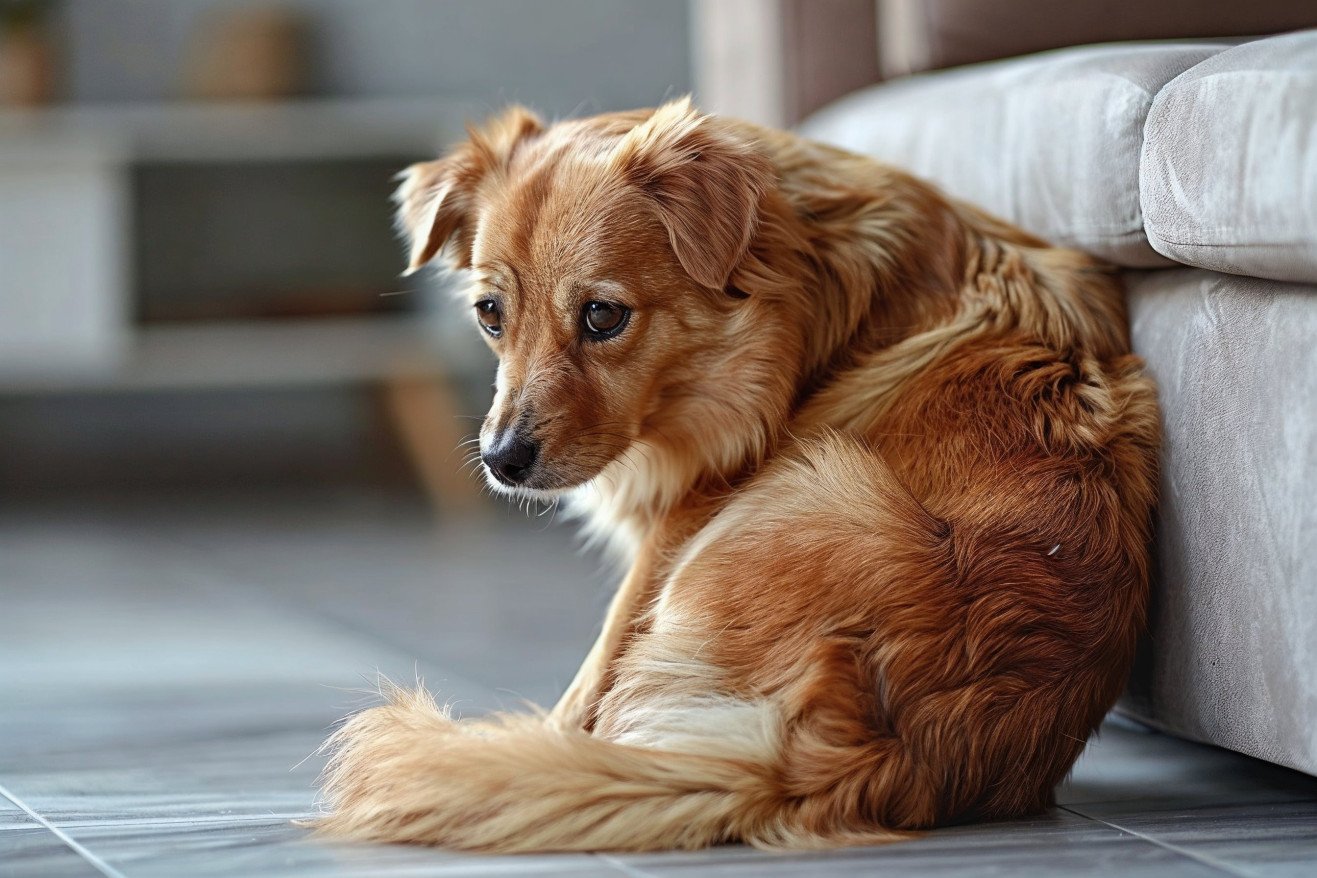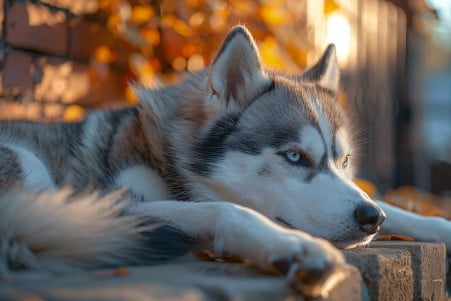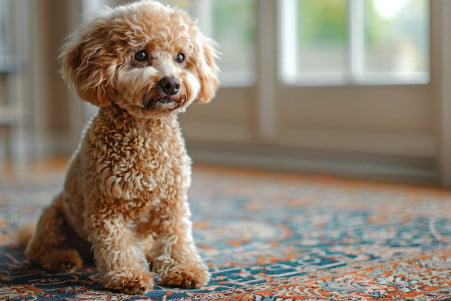Why Does My Dog Keep Licking Their Butt and Tail? Common Causes
20 May 2024 • Updated 20 May 2024

If you’re at your wit’s end trying to stop your dog from licking their butt and tail, which can be both gross and a sign of an issue, you’re not alone. While licking their rear end is a natural part of grooming, it can also be a sign of skin issues like allergies or even digestive problems and worms that cause irritation. If your dog is licking their butt and tail more than usual, you may need to see a vet to help you figure out what’s going on and how to treat it.
In this article, we’ll cover the many reasons why your dog may be licking their butt and tail, from the medical to the behavioral, based on information from veterinarians. We’ll help you understand when your dog’s licking is a sign of a problem and when it’s not so you can determine when to seek help from a vet. We’ll also discuss some ways you can help your dog stop licking their butt and tail if it’s a behavioral issue.
Why does my dog keep licking their butt and tail?
Anal Gland Problems: A Common Cause
Anal glands, or anal sacs, are small sacs located on either side of a dog's anus. They are designed to secrete a smelly substance that dogs use to mark their territory and identify themselves to other dogs. However, when these glands get impacted or infected, they can cause dogs to lick and scoot.
As noted by Dr. Buzby's ToeGrips for Dogs, symptoms of anal gland issues include licking, scooting, a fishy smell, and staining on the dog's sitting or lying surfaces. WagWalking.com also explains that if left untreated, impacted glands can rupture or lead to infections that require antibiotics.
It's important to get your dog to the vet if you notice these symptoms because if anal glands are expressed improperly, it can cause pain and even lead to more serious issues like anal gland adenocarcinoma, a type of cancer, according to VCA Animal Hospitals. Treatments can include manual expression of the glands, antibiotics for infections, and adding fiber to the dog's diet to help the glands express normally, as suggested by PetMD.
While anal gland problems are a common cause of scooting and licking, it's important to not rule out other causes, such as worms, which we'll discuss in the next section.
Intestinal Parasites: A Hidden Cause
Intestinal parasites, like worms, can cause anal irritation and, in turn, lead to scooting and licking in dogs. According to The Spruce Pets, dogs are at risk for several different types of intestinal parasites, including roundworms, hookworms, and whipworms. These parasites can cause symptoms like soft stools, diarrhea, weight loss, and lethargy, all of which can lead to anal irritation and discomfort.
As mentioned by Hill's Pet Nutrition, taking a stool sample to the vet can help detect internal parasites. From there, the vet can prescribe deworming medications to get rid of the parasites and offer supportive treatment to help the dog heal. BetterPet notes that regular deworming and fecal checks are important for preventing and treating parasite infections that could be causing your dog to lick their butt.
While intestinal parasites are a potential hidden cause of anal irritation, skin allergies and infections are another common issue that we'll discuss next.
Skin Allergies and Infections: Itchy Discomfort
Skin allergies and infections can also cause itching and irritation in the anal and tail area, leading to excessive licking. According to Dr. Buzby's ToeGrips for Dogs, common allergens that may trigger skin reactions in dogs include environmental allergens, food allergies, and flea bites. Bored Panda notes that skin infections, sometimes secondary to allergies, can also cause itching and licking.
The symptoms of skin allergies and infections may include redness, inflammation, and hair loss, as outlined by PetMD. It’s important to identify and treat the root cause of the allergy or infection. Treatment options may include antihistamines, medicated shampoos, and dietary modifications to help control the issue and soothe the discomfort.
Behavioral Factors: Anxiety, Boredom, and Habits
In some cases, excessive licking and scooting may be a result of a behavioral issue rather than a medical one. According to Dr. Buzby's ToeGrips for Dogs, anxiety and stress can lead to compulsive licking or over-grooming behavior in dogs. PetMD also notes that boredom and lack of mental stimulation may contribute to excessive licking.
If your dog is licking their butt due to behavioral issues, it’s important to address the root cause. The Dodo lists potential solutions including environmental enrichment, increased exercise, and behavior modification techniques to help stop the behavior. In addition to these solutions, providing your dog with interactive toys, a calming jacket, and plenty of physical and mental stimulation can help reduce anxiety-driven licking.
Home Remedies and How to Prevent
While home remedies can help with mild cases of excessive licking or scooting, it's important to treat the root cause. According to Four Leaf Rover, a warm compress with calendula tincture can help reduce inflammation and help the anal glands drain. PetHelpful also recommends using colloidal oatmeal baths, aloe vera, and salmon oil to help with skin irritation.
Good hygiene and grooming can also help prevent skin irritation and infection. Dogs Lounge notes that a balanced diet and regular exercise are important for overall health and stress reduction, which can help with excessive licking.
That said, if you're unable to stop the excessive licking or scooting, or if it gets worse, it's important to see a vet to get a proper diagnosis and treatment. As we'll discuss in the next section, some of the underlying causes of scooting and excessive licking will need to be treated by a vet to make sure your dog doesn't experience further discomfort or problems.
When to See a Vet
If your dog’s excessive licking or scooting persists or is particularly severe, it’s important to see a vet. According to PetMD, symptoms that could indicate a more serious problem include swelling, redness, discoloration, or bad smells. The vet can run tests like skin tests, blood tests, or fecal tests to determine if the issue is caused by an infection, parasites, or anal gland issues.
As mentioned by VCA Animal Hospitals, it’s important to get treatment for urinary tract infections, bladder stones, or impacted anal glands as soon as possible to prevent complications and further discomfort for the dog. If left untreated, these issues can get worse and lead to more serious health problems. The PDSA notes that it’s important to get in touch with your vet if your dog is experiencing any issues with their bottom.
Conclusion: How to Help Your Dog Stop Excessive Licking
This article has covered the many potential causes of excessive licking and scooting in dogs, including anal gland issues, parasites, skin allergies and infections, and behavioral issues. By stressing the importance of seeing a vet if the issue is persistent or severe, the conclusion also highlights the importance of finding and treating any medical problems that may be causing the licking.
Preventative measures, such as keeping your dog clean, feeding them a balanced diet, and addressing behavioral issues, can also help reduce the risk of excessive licking. In the end, it’s important to address this issue to ensure that your dog is comfortable, healthy, and happy. Pet parents should always be aware of their dog’s behavior and seek professional help when necessary.


